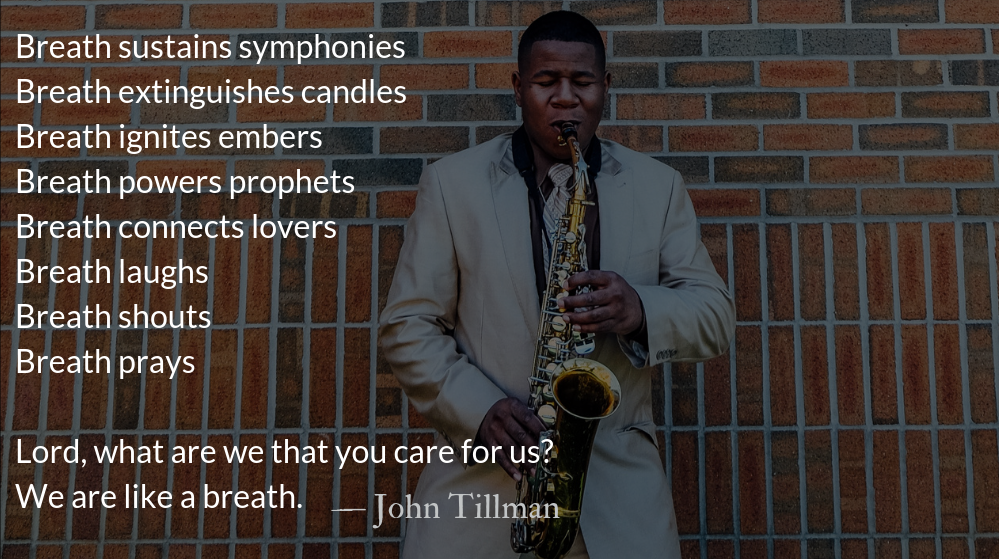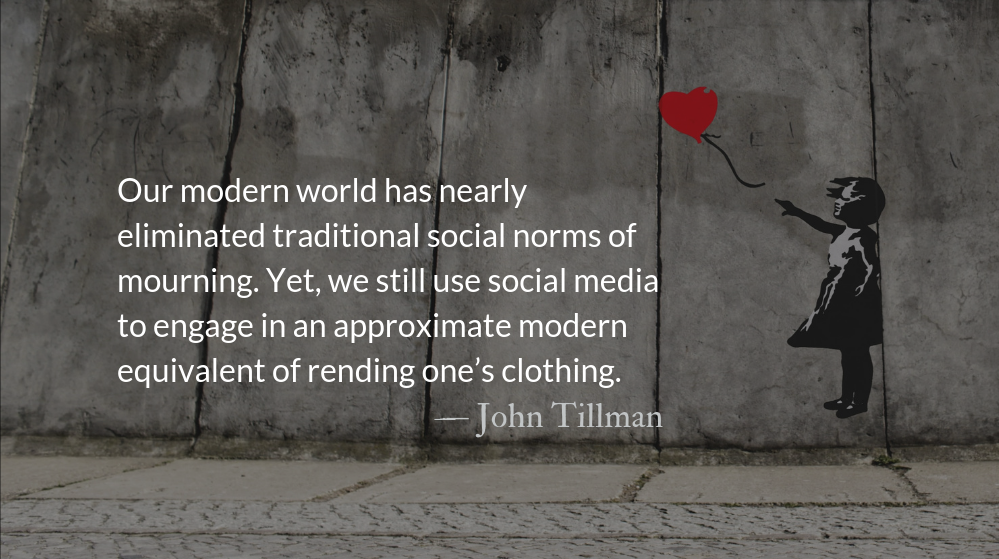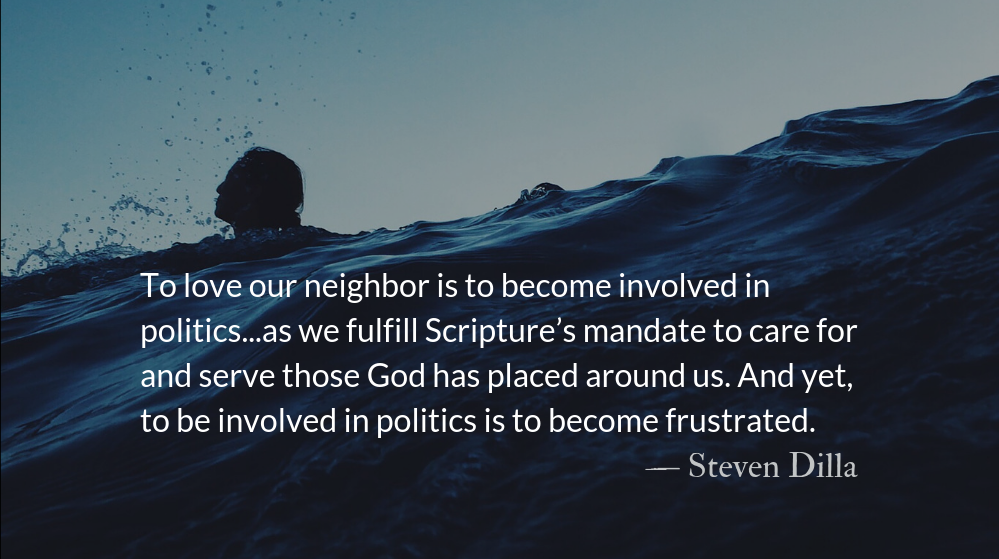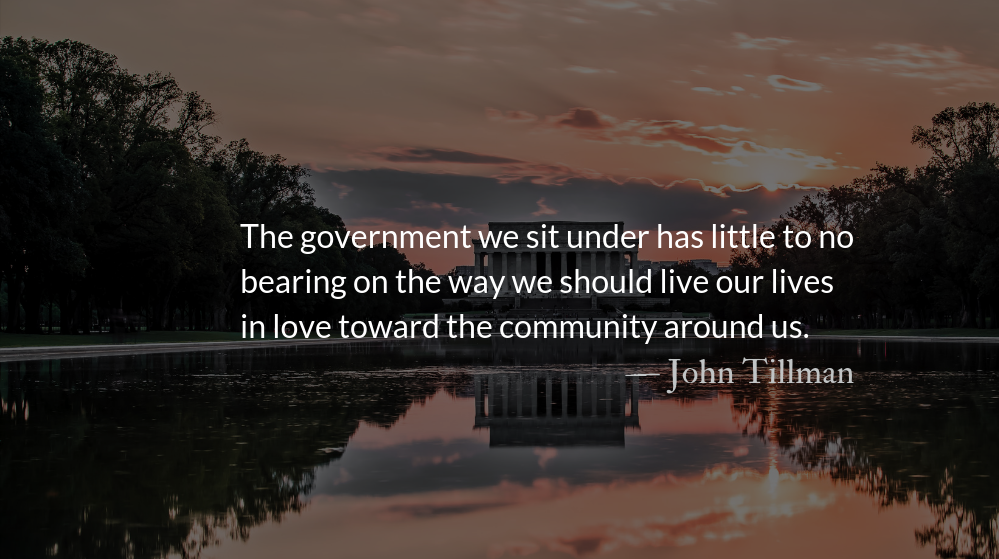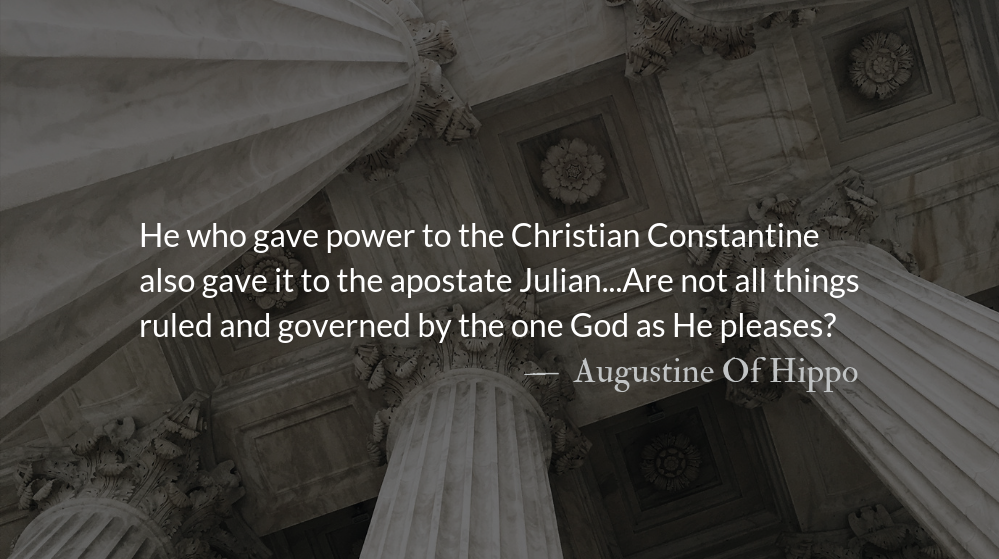Psalm 144.3-4
Lord, what are human beings that you care for them,
mere mortals that you think of them?
They are like a breath;
their days are like a fleeting shadow.
John 3.5-8
Jesus answered, “Very truly I tell you, no one can enter the kingdom of God unless they are born of water and the Spirit. Flesh gives birth to flesh, but the Spirit gives birth to spirit. You should not be surprised at my saying, ‘You must be born again.’ The wind blows wherever it pleases. You hear its sound, but you cannot tell where it comes from or where it is going. So it is with everyone born of the Spirit.”
Reflection: Breath, Reconsidered
By John Tillman
We rightly think of the psalmist comparing us to breath as humbling. But not everything that humbles humiliates. When humbled we are prepared to be lifted up, by God.
In Aramaic and Greek the word for “Spirit,” “breath,” and “wind” is the same word. This makes Christ’s conversation with Nicodemus one in which we must carefully attune our ears to context. Jesus is purposefully mixing his meanings. As Eugene Peterson rhetorically asks in his book, Christ Plays in Ten Thousand Places, “What’s being talked about here, breathing, or weather, or God?”
Although the length of a breath may be a humbling downside, perhaps, there is also an upside.
Breath, Reconsidered
Lord, what are we that you care for us?
We are like a breath.
Like a breath, Lord, we pass from the earth.
Like a breath, Lord, insubstantial we seem.
Like a breath, Lord, some deep and some shallow.
Like a breath, Lord, we dissipate in the breeze.
But you gave us breath,
Your mouth on Adam’s lips.
And you redeemed breath
When Christ first drew it in
And you received his breath,
When his Spirit he released
He gave that Spirit to us
When on the disciples he breathed…
We are Adam’s first breath,
His first breath, re-breathed.
We are like a breath, we are a beginning
We are like a breath the first sign of life
We are like a breath, divine inspiration
We are like a breath, a baby’s first cry
We are the breath, of a worker,
drawn to take strength
We are the breath, of a mother,
that can warm frigid hands
We are the breath, of the preacher,
whose voice carries a dream
We are the breath, of a singer,
whose song fills the land
Breath sustains symphonies
Breath extinguishes candles
Breath ignites embers
Breath powers prophets
Breath connects lovers
Breath fills balloons
Breath is life
Breath serenades
Breath enlightens
Breath enlivens
Breath laughs
Breath shouts
Breath prays
Breath fills
Breath comes
Breath goes
Lord, what are we that you care for us?
We are like a breath.
Prayer: The Greeting
The words of the Lord are pure words, like silver refined from ore and purified seven times in the fire. — Psalm 12.6
– Prayer from The Divine Hours: Prayers for Autumn and Wintertime by Phyllis Tickle.
Prayers from The Divine Hours available online and in print.
Today’s Readings
Amos 1 (Listen – 2:38)
Psalm 144 (Listen – 1:56)
Additional Reading
Read More poetry from Accepting Jesus
From woman, formed of man
And formed of earth
God takes on flesh.
Though prophets are dumb
Profound cries of God
Are heard within the creche.
Read More about poetry and Walking the Way of Pain
Poetry has a way of putting into language that which we are unable to speak on our own. It communicates poignant, intentional thoughts, feelings, and expressions of all that we hold dear, but, perhaps, have never uttered aloud.
Support our Work
Each month over 22,000 Park Forum email devotionals are read around the world. Support our readers with a monthly or a one time donation.

